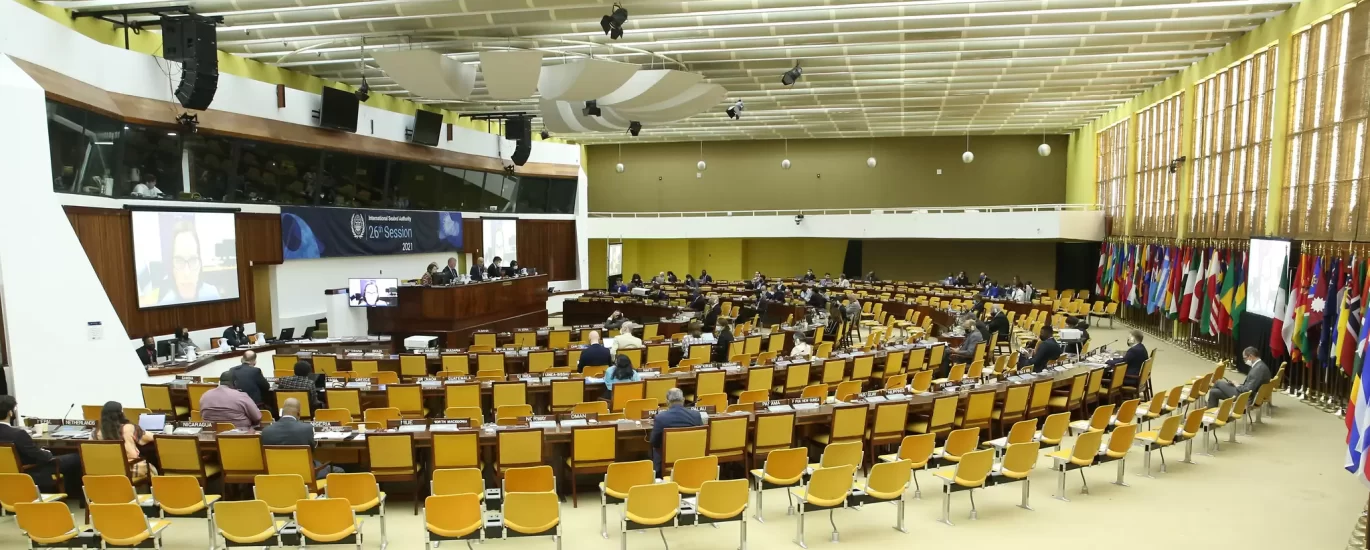We are pleased to announce that the Assembly of the International Seabed Authority (ISA) has awarded observer status to the Centre for Community and Oceanic Law.
As an NGO Observer, the Centre may:
(a) sit at public meetings of the Assembly of the ISA;
(b) upon invitation from the President, subject to approval by the Assembly, may make oral statements on questions within the scope of its activities.
submit written statements within the scope of its activities that are relevant to the work of the Assembly; and
(c) may designate representatives to participate, without the right to vote, in the deliberations of the Council, upon the invitation of the Council, on questions affecting it or within the scope of its activities.
The Centre’s management views this recognition as a significant milestone in advancing the Centre’s objectives, particularly around deep-seabed issues, within the ECOWAS region. This status will strengthen the Centre’s collaborative work with academic institutions across the subregion, reinforcing its commitment to meaningful progress in this field.
The International Seabed Authority (ISA) is an autonomous international organization established under the 1982 United Nations Convention on the Law of the Sea (UNCLOS) and the 1994 Agreement relating to the Implementation of Part XI of the United Nations Convention on the Law of the Sea (1994 Agreement).
ISA is the organization through which State Parties to UNCLOS organize and control all mineral-resources-related activities in the Area for the benefit of humankind as a whole. In so doing, ISA has the mandate to ensure the effective protection of the marine environment from harmful effects that may arise from deep-seabed-related activities.
The main organs of ISA are the Assembly, the Council and the Secretariat. The Assembly consists of all the Members and is considered the supreme organ. The Council is the executive organ, and the Secretariat is headed by a Secretary-General. The Assembly elects the 36 members of the Council from five groups of State parties representing different interests and ensuring an equitable geographical distribution (Art. 161(1)). The Secretary-General is elected by the Assembly from among the candidates proposed by the Council (Art. 166(2)(c)). It is the task of the Assembly to establish the general policies of the Authority in collaboration with the Council (Art. 160(1)), while the Council is entrusted to establish specific policies (Art. 162(1)). The Assembly also approves the budget of the Authority, including the scale of assessment for contributions by States parties, as submitted by the Council (Art. 160(2)(e) (h)), and must finally approve the rules, regulations and procedures relating to prospecting, exploration and exploitation in the Area (Art. 161(2)(f)(ii)). The primary function of the Council, which has an extensive range of powers, is to supervise and control the implementation of Part XI of the Convention on all matters within the competence of ISA (Art. 162 (2)(a)).








